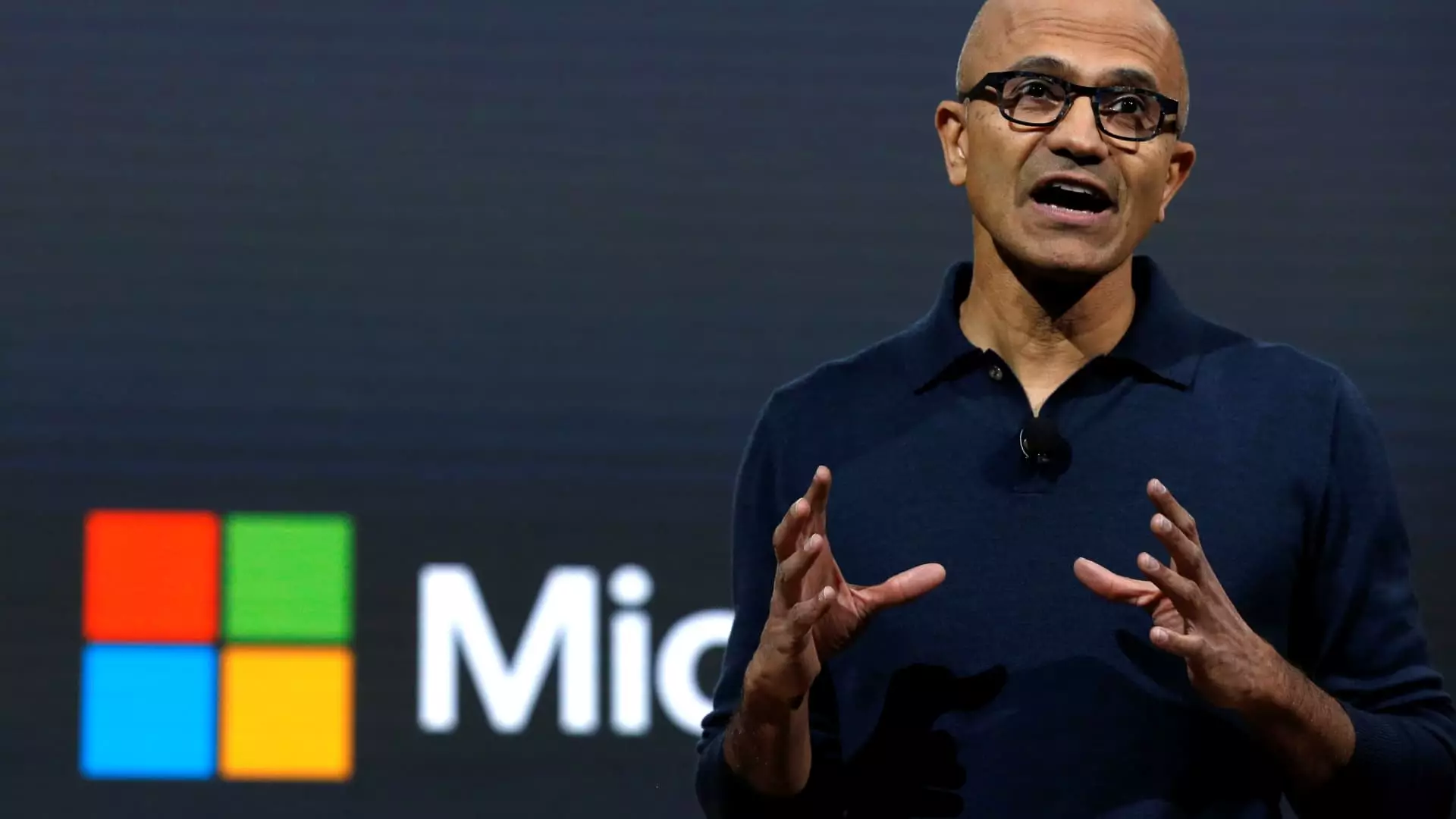Microsoft’s Build developer conference is set to kick off, providing a platform for the company to showcase its latest advancements in artificial intelligence. With CEO Satya Nadella hinting at AI becoming a significant part of every PC by 2024, Microsoft’s ownership of Windows gives it a unique edge in the realm of AI. The integration of AI, such as the Copilot chatbot assistant, into Windows will not only enhance user experience but also pave the way for new possibilities in AI-driven computing.
Despite the promising future of AI in Windows, Microsoft faces a twofold challenge of maintaining its position in the AI landscape while boosting PC sales. The past two years have seen a decline in PC sales after a surge during the pandemic-driven upgrade cycle. However, recent reports of a recovery in the PC market signal a potential opportunity for Microsoft to leverage its AI tools to incentivize customers to upgrade to newer, more advanced PCs.
Central to the advancement of AI in PCs is the integration of specialized hardware components such as neural processing units (NPUs). These NPUs, distinct from traditional CPUs, are tailored to handle AI tasks efficiently. Microsoft’s collaboration with chip manufacturers like AMD, Intel, and Qualcomm will enable AI PCs to perform complex AI functions both online and offline. The upcoming release of AI-powered PCs with dedicated NPUs will mark a significant milestone in the evolution of computing.
While Intel currently dominates the PC chip market, with AMD and Qualcomm competing for market share, the landscape is evolving rapidly with the introduction of AI-specific chips. Companies like Apple, Qualcomm, and Microsoft are investing heavily in developing AI-powered chips to meet the growing demand for AI-driven applications. The shift towards AI-centric computing is reshaping the competitive dynamics in the chip market, with each player vying for a larger slice of the pie.
The Future of AI in Windows: Opportunities and Challenges
As Microsoft continues to innovate in the AI space, the future of AI in Windows holds both opportunities and challenges. The integration of AI features like Copilot into Windows will enhance user engagement and drive adoption of newer, more powerful PCs. However, the company must navigate the complexities of the evolving AI landscape, including the integration of AI chips and the optimization of AI models for Windows. By staying ahead of the curve and embracing the AI revolution, Microsoft can solidify its position as a leader in AI-driven computing.
Microsoft’s foray into AI-driven computing through Windows represents a significant milestone in the company’s evolution. With a focus on integrating AI seamlessly into the Windows ecosystem and collaborating with chip manufacturers to power AI PCs, Microsoft is poised to shape the future of computing. By leveraging its strengths in AI technology and Windows ownership, Microsoft can cement its position as a key player in the AI market.

